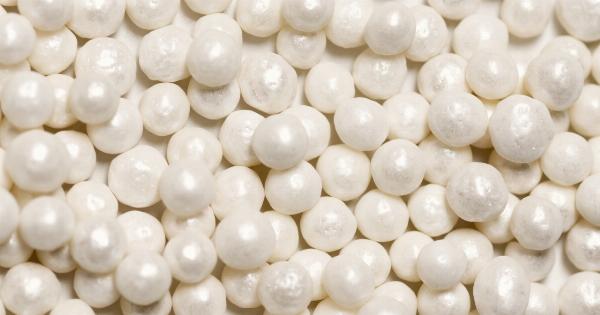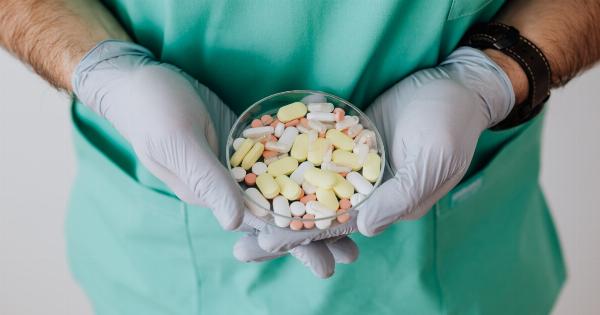Prostate cancer is one of the most common types of cancer among men worldwide. According to the American Cancer Society, it is estimated that over 248,530 new cases of prostate cancer will be diagnosed in the United States in 2021 alone.
While age, race, and family history are uncontrollable risk factors, lifestyle factors, including diet, may play a crucial role in the prevention and development of prostate cancer.
The Role of Diet in Prostate Cancer Prevention
Research suggests that certain dietary patterns and food choices may impact the risk of developing prostate cancer. Over the years, various studies have investigated the potential benefits of nuts in reducing the risk of prostate cancer.
Types of Nuts with Protective Effects
Several types of nuts have been singled out for their potential protective effects against prostate cancer. Let’s take a closer look at these nuts:.
1. Walnuts
Walnuts are a rich source of omega-3 fatty acids, antioxidants, and phytosterols. These compounds have been identified as contributors to the potential protective effects of walnuts against prostate cancer.
Some studies have indicated that walnuts may help reduce prostate cancer cell proliferation and inhibit tumor growth.
2. Almonds
Almonds are packed with nutrients like vitamin E, magnesium, and fiber. Vitamin E, in particular, has been associated with a decreased risk of prostate cancer.
Almonds also contain phytochemicals that may have anti-cancer properties, contributing to their potential benefits in prostate cancer prevention.
3. Brazil Nuts
Brazil nuts are an excellent source of selenium, a mineral that plays a crucial role in protecting against oxidative damage. Some studies suggest that selenium may be associated with a reduced risk of prostate cancer.
However, more research is needed to establish a definitive link between Brazil nut consumption and prostate cancer prevention.
4. Pistachios
Pistachios are known for their high content of various compounds, including antioxidants, fiber, and phytosterols. These components have been studied for their potential anti-cancer effects.
Preliminary studies have suggested that pistachios may help decrease prostate-specific antigen (PSA) levels, which can be an indicator of prostate cancer progression.
5. Pecans
Pecans are rich in antioxidants, including vitamin E, which has been linked to a reduced risk of prostate cancer. Additionally, pecans contain various phytochemicals, such as ellagic acid, which may contribute to their potential protective effects.
Research on the Effectiveness of Nuts
Several studies have explored the relationship between nut consumption and prostate cancer prevention. While the findings are not conclusive, they provide valuable insights into the potential benefits of nuts in reducing the risk of prostate cancer.
1. The Adventist Health Study
The Adventist Health Study, a long-term study conducted among Seventh-day Adventist men, identified an inverse association between nut consumption and the risk of prostate cancer.
The study found that men who consumed nuts frequently had a lower risk of developing prostate cancer compared to those who did not consume nuts regularly.
2. The Health Professionals Follow-Up Study
The Health Professionals Follow-Up Study, which followed a large cohort of male health professionals over several decades, also investigated the link between nut consumption and prostate cancer risk.
The study found that men who consumed nuts more than five times per week had a significantly lower risk of developing lethal prostate cancer.
3. A Pooled Analysis of Observational Studies
A pooled analysis of observational studies published in the British Journal of Cancer suggested a potential protective effect of nut consumption against prostate cancer.
The analysis found that higher nut consumption was associated with a reduced risk of prostate cancer, particularly in European populations.
Recommended Daily Intake of Nuts
While various studies have indicated the potential benefits of nuts in prostate cancer prevention, it is essential to consume them in moderation and as part of a well-balanced diet.
The American Cancer Society recommends a daily intake of 1.5 ounces (about 42.5 grams) of nuts as part of a healthy eating pattern.
Incorporating Nuts into Your Diet
If you’re looking to incorporate nuts into your diet, here are a few ideas to get you started:.
1. Snack on a Handful of Nuts
Enjoy a handful of nuts as a satisfying snack between meals. Mix different types of nuts to add variety and maximize the potential health benefits.
2. Sprinkle Nuts on Salads
Add a crunchy texture and nutty flavor to your salads by sprinkling a handful of chopped nuts like almonds, walnuts, or pecans.
3. Make Nut Butter
Create your own natural nut butter by blending your favorite nuts into a smooth spread. Spread it on whole grain toast or use it as a dip for fruits and veggies.
4. Top Yogurt or Oatmeal with Nuts
Add a nutritional boost to your breakfast by topping your yogurt or oatmeal with a sprinkle of chopped nuts.
Conclusion
While research on the potential benefits of nuts in preventing prostate cancer is promising, it is important to approach the findings with caution.
Nuts should be consumed as part of a well-balanced diet that includes a variety of fruits, vegetables, whole grains, and lean proteins. If you have an existing medical condition or concerns about your prostate health, it is always recommended to consult with a healthcare professional for personalized advice.






























